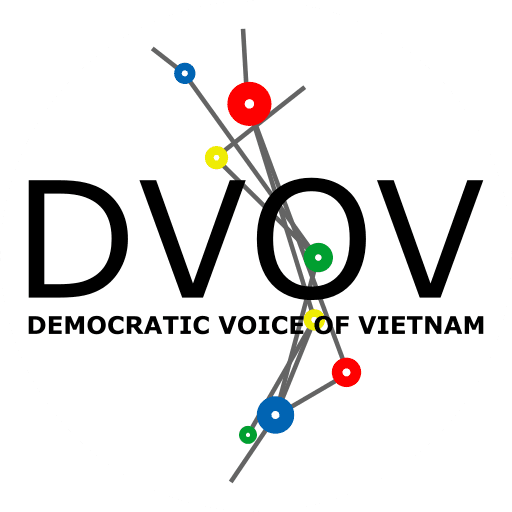State of Freedom of Religion or Belief in Vietnam
State-controlled religious organizations
- The “1997 Cao Dai Sect”
- Buddhist Church of Vietnam (formerly Vietnamese Buddhist Sangha)
- Evangelical Church of Vietnam – South
- Evangelical Church of Vietnam – North
- Catholic Solidarity Committee
- Hoa Hao Buddhist Administrative Council
Buddhism
Unified Buddhist Church of Vietnam, the most popular religion in Vietnam, continues to be outlawed. The demolition Lien Tri Temple, a century-old pagoda in Thu Thiem, Saigon, in 2016 illustrates this crackdown against the Buddhist faith. A very valuable piece of Vietnam history has been destroyed.
Reported violations
Catholicism
With 6-8 million followers, the Catholic Church is the only truly independent religious organization that is recognized by the Vietnamese government. Violations against Catholics include arrest and detention of adherents, harassment of clergy members, expropriation of lands and other property of parishioners, and use of non-state actors (such as Red Flag Associations) to physically assault parishioners, threaten their priests, vandalize their church and disrupt their religious services.
Reported violations
Cao Dai
Established in 1926 and counting some 4 million followers, Cao Dai Religion has been outlawed since 1979. In 1997, the Vietnamese government created the Cao Dai Tay Ninh Sect, which is substantively different from the original Cao Dai Religion in both religious dogmas and church structure. The Government then transferred to this sect the Holy See of Cao Dai Religion. With the government’s support, members of the new sect have used force and violence to seize Cao Dai temples, disrupt Cao Dai religious ceremonies, and force Cao Dai followers to submit themselves to the sect’s authority. Essentially, the Vietnamese government has used the Cao Dai Tay Ninh Sect as a non-state instrument of forced conversion of faith.
Reported violations
Hoa Hao Buddhism
Hoa-Hao Buddhism, founded in 1939, currently has some 6 millions followers, mostly in the Mekong Delta of Vietnam. For the past four decades, the Vietnamese Communist authorities have conducted campaigns of extermination and destruction of Hoa-Hao Buddhist independent practice. They have confiscated most properties of the Hoa Hao Buddhist Church, banned the circulation of Hoa Hao Buddhist religious scriptures, and harassed, assaulted, and incarcerated many Hoa-Hao Buddhist leaders and followers.
Reported violations
Protestantism
Evangelical Church of Vietnam (South)
Government blocking ECVN (South) Clerical Congress of 2020
Hmong Protestants
Hmong residents in Northern Vietnam made first contact with Christianity in 1987, through radio broadcasting from Manila, the Philippines. The number of Hmong who converted to Christianity has since grown rapidly. In response, the government launched a series of measures, including policy directives and training manuals issued to local officials, to eliminate or discourage the practice of Protestantism among the Hmong population, which the government accused of being used by reactionary forces to oppose the government and undermine national solidarity.
Reported violations
Montagnard Protestants
“Montagnard” depicts linguistically, culturally, and ethnically diverse tribes of indigenous peoples living in the Central Highlands of Vietnam. They had been exposed to Protestantism since the 1960’s due to the work of American missionaries. Seeing the spread of Protestantism as a threat to its full control of the region, in the late 1990’s the Vietnamese government started to crack down on Montagnard house churches, destroying some and closing down most of them. The government continues to force Montagnard Protestants to either renounce their faith or join government-approved churches.
Reported violations
Lutheran
There are two Lutheran groups in Vietnam; one has been recognized by the government while the other, the Vietnam-U.S. Lutheran Alliance Church (VN-US LAC), continues to see their repeated applications for registration denied by the government. The Lutheran leaders believe that their identity provided in the applications were released to the local public security police for surveillance and harassment. Lutheran Pastors in the Southwest and Central provinces have reported being labeled by the police as “reactionary elements” who conspired to “agitate against the government”.
Reported violations
Mennonite
There are several Mennonite groups in Vietnam, some of which have registered with the government under the Vietnam Mennonite Church, while others have not. Unregistered Mennonite congregations have been subjected to various violations against their right to freedom of religion or belief, and their leaders have been detained in connection with their religious activities and their advocacy on social justice issues. Some Mennonite followers have had their homes burnt down by unknown assailants, and church leaders have received sentences as long as eight years in connection with proselytising and teaching. Mennonite congregations in Quang Ngai and the Central Highlands report various forms of pressure on them to recant, including threats of violence from “thugs” hired by local security forces, and the disruption of religious services.
Reported violations
Hmong Duong Van Minh Sect
The Duong Van Minh Sect is a variant of the Christian religion adopted by some Hmong ethnics. After 30 years of persecution the number of apparent followers of the Duong Van Minh religion has shrunk from approximately one hundred thousand at the religion’s highest point to around ten thousand today, mostly in four Northeastern provinces of Vietnam: Cao Bang, Bac Kan, Tuyen Quang and Thai Nguyen. Since this sect is not recognized as a “faith”, the Vietnamese government openly orders its eradication.
Reported violations
Khmer Krom
The vast majority of the Khmer Krom population reside in the Southwest Region of Vietnam and follow the Theravada branch of Buddhism. Their temples had traditionally provided education to young community members on the Khmer language and culture. After 1975, the Communist government banned such practice. It later forced the Khmer Krom Buddhist Church to become part of the state-sponsored Buddhist Church of Vietnam, which interferes heavily with Khmer Krom religious activities and has ordered the defrocking of monks who advocated for greater religious freedom.
Reported violations

Hurrah! At last I got a web site from where I know how to truly take valuable information concerning my…